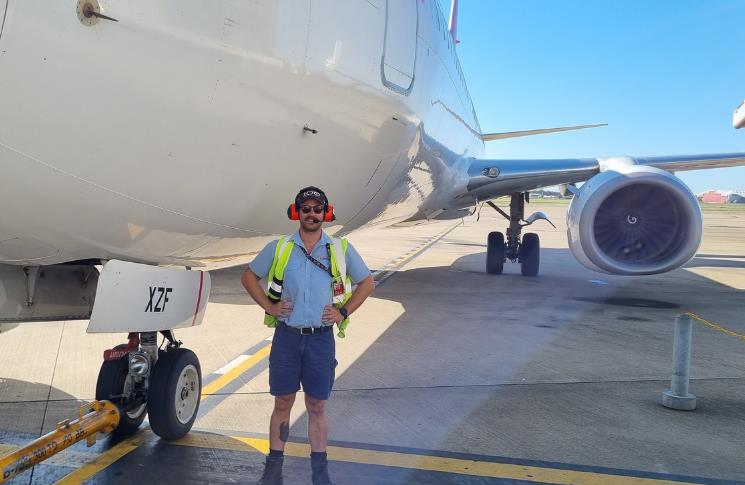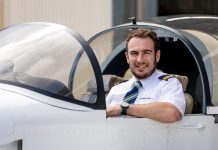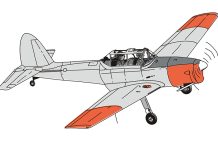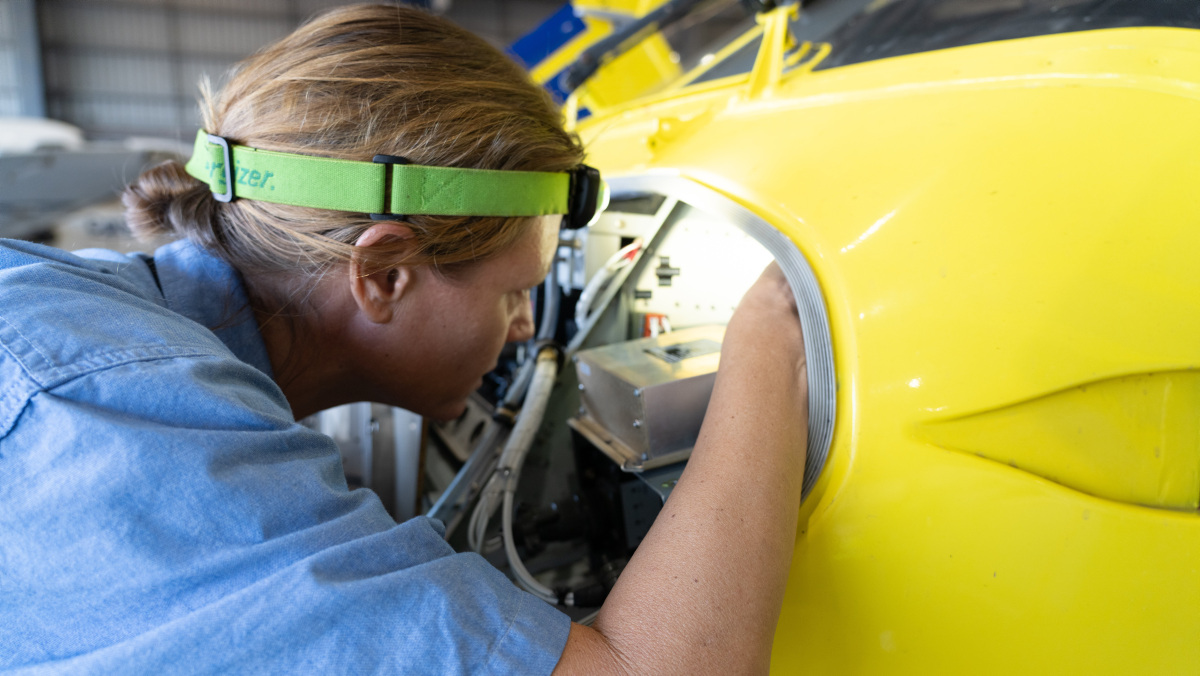When originally pursuing a career in the health industry, it wasn’t too long before aircraft maintenance engineer (AME) Sam Philpot realised he’d made a mistake.
Sam – whose dad was also an aircraft engineer and Boeing employee – quickly recognised that aviation was simply in his blood.
‘In 2014 I attended an aviation open day and I knew then that I wanted to be an engineer,’ he says. ‘Ever since, I haven’t looked back.’
Sam, one of our 2022 AME scholarship recipients, started studying a Certificate IV in Aeroskills and quickly earned an apprenticeship with Australia’s largest airline, Qantas.
‘The apprenticeship offered me the opportunity to explore all aspects of the role, including rotations across crews in the different hangars, as well as 6 months experience at Brisbane line maintenance operations [LMO],’ he says.
‘It was here that I realised that I wanted my career in LMO. I really enjoyed the dynamic and fast- paced environment, as well as working as part of a team that contributes to safely getting customers to their destination.’
However, when COVID-19 impacted the world, Sam was furloughed for almost 9 months, just like thousands of others in the aviation industry in Australia.
‘The financial impacts of the shutdown affected my ability to pursue my study goals towards my diploma,’ he says.
‘So, receiving the CASA scholarship actually allowed me to continue my studies. I can finish my diploma and hopefully achieve my B1.1 licence type rating, eventually on multiple aircraft types.
Sam says no 2 workdays are ever the same. They vary a lot when you’re maintaining a wide array of engines and aircraft components for the Flying Kangaroo.
‘One day I could be doing receipt and dispatch of 737s or A330s from the domestic or international terminals, as well as fixing any incoming defects,’ he says.
‘Or I could be carrying out scheduled maintenance or performing troubleshooting for aircraft on the ground.
‘A challenging component of the role is shift work. While it has its benefits, it can also be tricky working weekends and on special occasions, but the positive team environment helps with this.’
Sam says the key to being a successful aircraft engineer is excellent time management skills.
‘That’s so critical, as well as attention to detail,’ he says. ‘You also need a strong safety focus – that’s non-negotiable. Communication skills and teamwork are also essential.
‘My advice would be, set yourself goals, make time to study and don’t be afraid to ask lots of questions of your peers.
‘It’s been a long road for me and I still have more I want to achieve, but it has been super rewarding and I wouldn’t change a thing.’





